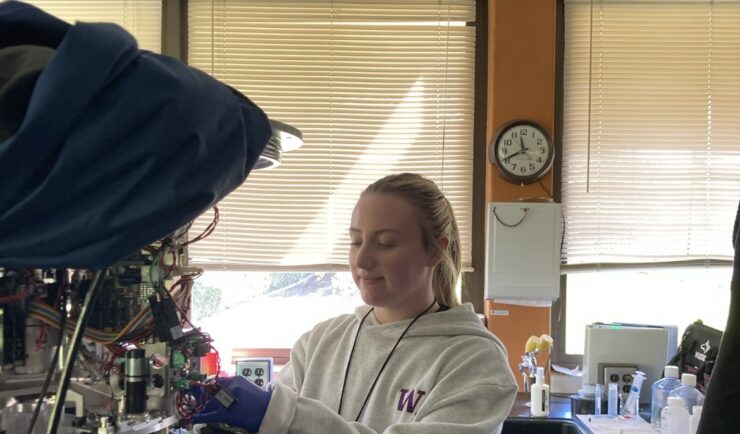- Employee Spotlight
- Environmental Resource Assessment & Management
NOAA Diversity in External Services Award Winner

Congratulations to Melis Ӧkter for receiving the first, annual NOAA Diversity in External Services Award. Melis is one of our coastal management specialists supporting our subcontract with NOAA’s Office for Coastal Management. This award recognizes Melis’ work establishing partnerships and networks to create a safe space to learn and share about diversity and equity issues. Melis provided information and resources, such as risk communication and nature-based solutions, from the client to underserved communities. In addition, Melis is a leader of diversity, equity, and inclusion within the National Estuarine Research Reserve System, whose staff work closely with local communities. A big congratulations to Melis on this well-deserved award!
See More CSS Insights

Evaluating Chemical Transfer from Pregnant and Nursing Animals
CSS scientists supporting the Environmental Protection Agency’s Office of Pesticide Programs are reviewing modeling data that evaluates the potential for transfer of chemical residues from pregnant and nursing animals to fetuses and infants. The vast majority of data come from pharmaceuticals, but staff are reviewing some data from pesticides and other environmental contaminants as well.…

Praise for Spatial Modeling Work
Congratulations to our staff who helped support the Gulf of Mexico wind spatial modeling work! Through our contract with the National Oceanic and Atmospheric Administration’s (NOAA) National Centers for Coastal Ocean Science, this team is helping to lay the groundwork for the new Wind Energy Spatial Modeling Program as offshore wind continues to gain momentum.…

Monitoring Algal Blooms for Harmful Toxins
CSS employee owners support NOAA’s National Centers for Coastal Ocean Science (NCCOS) Harmful Algal Blooms (HAB) Sensor Development Team in their efforts to detect and monitor these harmful algal blooms in coastal waters where they are likely to occur. HAB monitoring is critical for detecting harmful toxins produced by some algae. When present in over…
